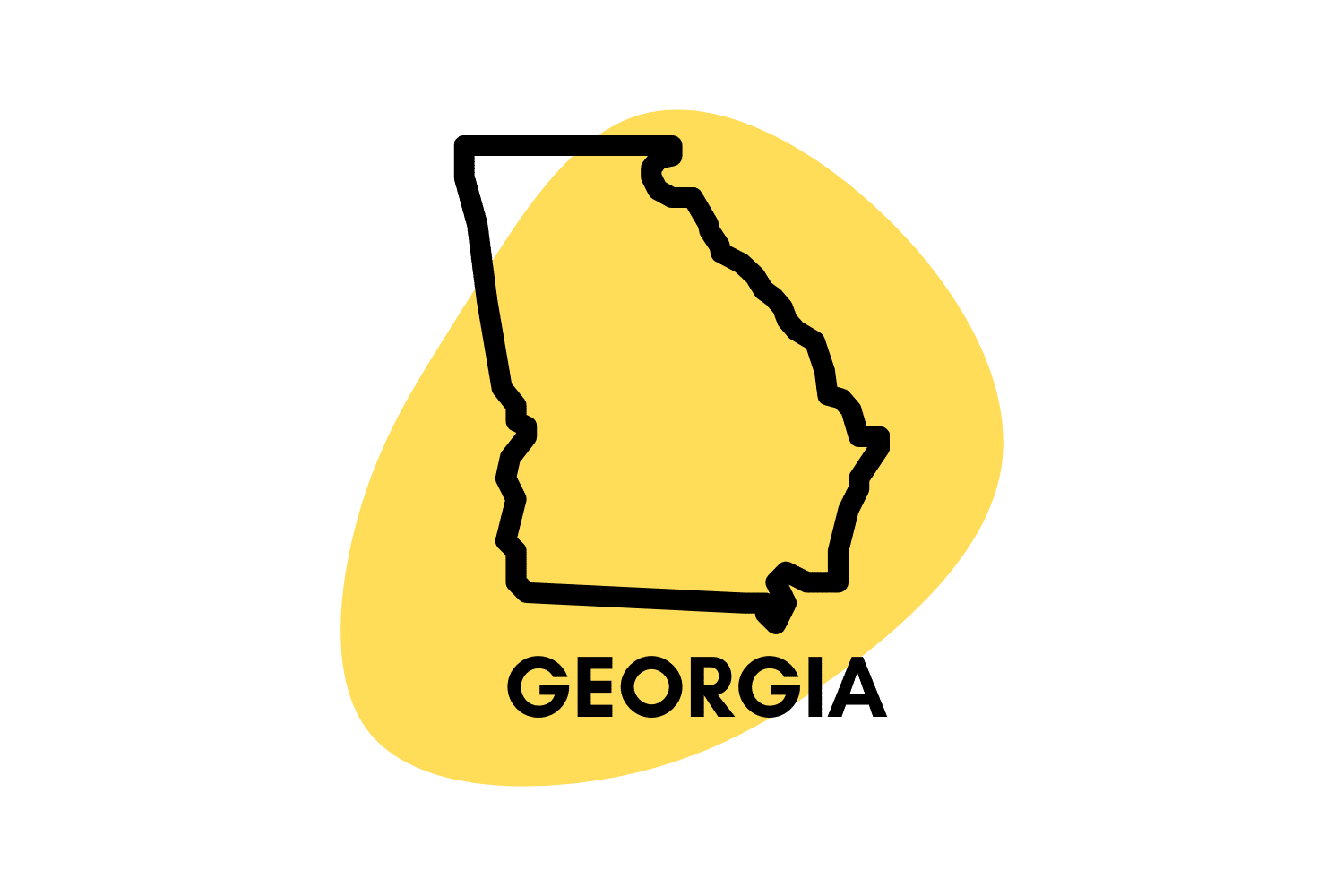A Look At Georgia’s 2023 Psychedelic Drug Laws & What Might Change
Georgia is bullish on peaches 🍑, but bearish on psychedelics 🍄 (for now).

Georgia is famous for having very harsh drug laws. However, many experts today recommend the reclassification of psychedelic mushrooms due to their diverse medical applications, causing some of Georgia’s politicians to reconsider.
There was talk of forming a Psychedelic Study Committee, and Atlanta is considering decriminalizing certain psychedelics.
Read on to learn more about the benefits of magic mushrooms, as well as the penalties for possessing them. We’ll also cover LSD, ketamine, MDMA, and more regarding the state of Georgia.
Are Magic Mushrooms Legal in Georgia?
Magic mushrooms are illegal in Georgia.
Psilocin is similarly punishable under As per Georgia Code Section 16-13-25, both psilocybin and psilocin are considered Schedule I controlled substances.
This means possessing up to one gram of psilocybin can cost you between one and three years in prison. Higher quantities can bring significantly higher jail sentences and fines — however, convictions for personal amounts are rare in Georgia.
Because of recent scientific discoveries highlighting clear medicinal benefits and a high safety incidence for magic mushrooms, many experts recommend the reclassification of psilocybin. Many other states or local municipalities have already moved to decriminalize the use of magic mushrooms and psilocybin.
Magic mushroom spores are also illegal in the state of Georgia as outlined under O.C.G.A 16-13-71 (627).
Map of Magic Mushroom Laws In the USA
Do Magic Mushrooms Grow Wild in Georgia?
In Georgia, there are a few key species of magic mushrooms you may be able to find in nearby woods, gardens, parks, or ranchlands. You can look for Panaeolus cyanescens near cattle farms or Psilocybe cubensis throughout forested regions and parks.
Make sure you’re familiar with the differences in doses for each species of magic mushrooms.
What Are the Medicinal Uses of Shrooms?
Magic mushrooms have many medicinal benefits. The effects of magic mushrooms have been proven through over a dozen clinical trials spanning over 50 years.
Some of the main areas of focus include depression, post-traumatic stress disorder (PTSD), existential anxiety, addiction therapy, cluster headaches, obsessive-compulsive disorder, and various other mental health disorders.
There’s also evidence to suggest magic mushrooms can help users solve difficult problems at work or tap into unrealized creativity and flow states.
Is LSD Legal in Georgia?
No. LSD (short for lysergic acid diethylamide) is illegal throughout Georgia.
Like magic mushrooms, LSD is classified as a Schedule I restricted substance. Thus, possessing LSD in small amounts can cost you between one and three years in prison.
LSD-analogs are a legal gray area in Georgia. Some experts suggest compounds such as 1P-LSD, LSZ, ETH-LAD, PRO-LAD, AL-LAD, or ALD-52 are technically legal because they aren’t mentioned on the official list of restricted substances.
However, as per the Federal Analogue Act, it’s highly likely these substances are already illegal on a federal level because of their similarities to LSD.
Is MDMA Legal in Georgia?
MDMA (ecstasy) is still illegal in Georgia — but it may not remain this way for long.
MDMA-assisted psychotherapy is on the verge of becoming legal across the United States. The FDA is currently evaluating a new protocol submitted by MAPS (Multidisciplinary Association for Psychedelic Studies) for the treatment of PTSD.
If approved, registered clinicians can administer MDMA to patients legally.
But don’t expect MDMA to become legal anytime soon for recreational use. The legal changes apply strictly to mental health practitioners in a professional setting.
MDMA possession is still a criminal offense in the state of Georgia. The same applies to related amphetamine psychedelics, including DOM and MDA.
If caught with MDMA, you can get up to 3 years in prison, and the penalties are even harsher for possessing more than a gram.
This substance does offer therapeutic benefits, but it has been prohibited in the US since 1995. However, some lawmakers have recently opened up the debate on legalization.
Is Ketamine Legal in Georgia?
It’s illegal to use ketamine in the Peach State for non-medical uses.
Only trained, registered clinicians have access to ketamine legally. It’s used in anesthesia as well as the treatment of PTSD and treatment-resistant depression.
Outside of medical use, ketamine possession charges could lead to up to 3 years in prison and hefty fines.
Legal Psychoactive Substances in Georgia
Some psychoactive plants and substances have managed to avoid being listed on the list of restricted substances in Georgia. For example, kratom, delta 8 THC, delta 10 THC, HHC, kanna, salvia, and morning glory (LSA) are all technically legal in the state of Georgia (grey area).
Related: List of Legal Psychoactive Substances Around the World.
What’s The Difference Between Legalization & Decriminalization?
Legalization and decriminalization both involve reducing the penalties for the associated substances, but the concepts have some key differences.
Legalizing a drug nullifies all penalties related to it. In addition, this measure allows the sale and regulates the market. Sometimes substances are legalized for medical use only (recreational use remains illegal); other times, substances are legalized for both medical and recreational use.
Decriminalization, on the other hand, only nullifies or significantly reduces convictions. The main difference is that the drug itself is still illegal, but possessing it brings virtually no penalties. This helps considerably to decrease drug trafficking and free up the courts for more critical cases.
Key Takeaways: What’s The Future of Psychedelics in Georgia?
The Peach State is famous for its harsh drug laws. Possessing any controlled substance can lead to anywhere from 1 to 3 years in prison.
While it’s uncommon for Georgia state authorities to seek the full penalties for personal quantities of natural psychedelics — it can happen. Psychedelic drug laws are unlikely to change in Georgia in the near future.
The exception to this is the upcoming changes that may allow MDMA-assisted therapy and psilocybin-assisted therapy (medical use only) — which are changes being implemented on the federal level.